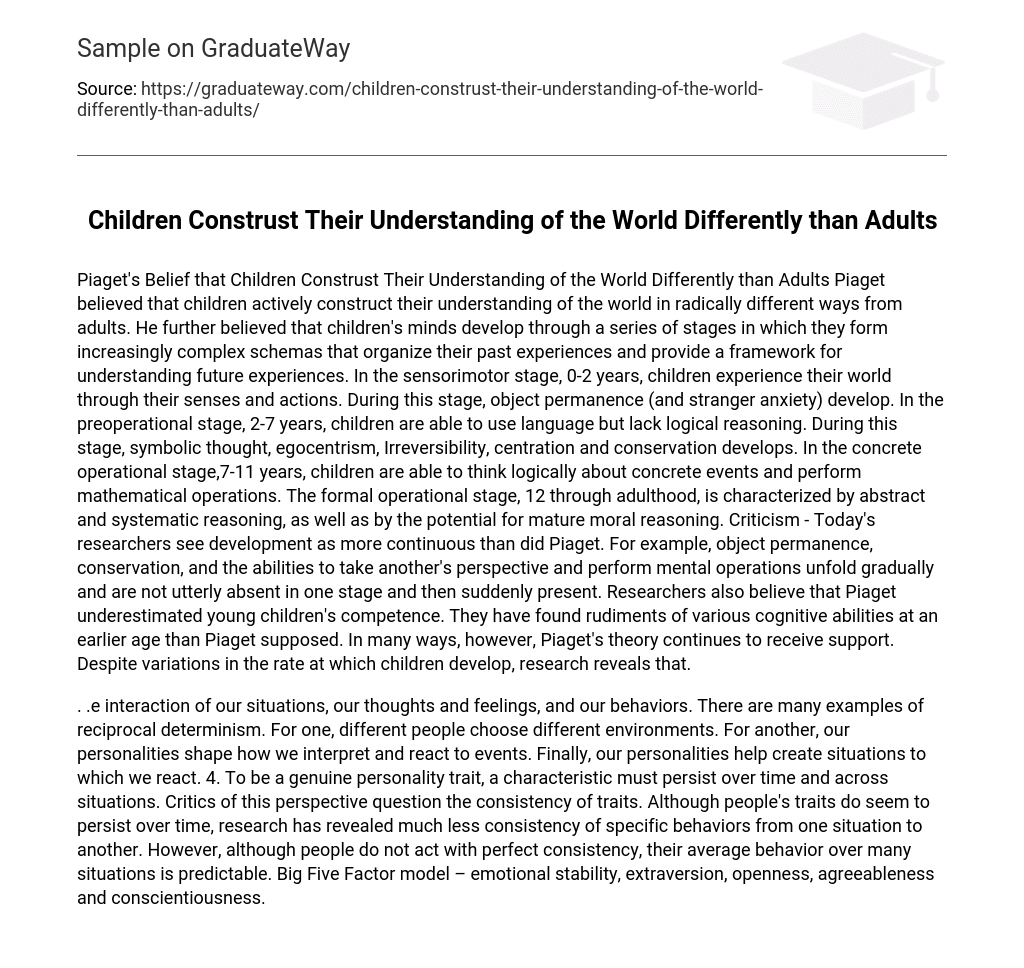Piaget’s Belief that Children Construst Their Understanding of the World Differently than Adults Piaget believed that children actively construct their understanding of the world in radically different ways from adults. He further believed that children’s minds develop through a series of stages in which they form increasingly complex schemas that organize their past experiences and provide a framework for understanding future experiences. In the sensorimotor stage, 0-2 years, children experience their world through their senses and actions. During this stage, object permanence (and stranger anxiety) develop. In the preoperational stage, 2-7 years, children are able to use language but lack logical reasoning. During this stage, symbolic thought, egocentrism, Irreversibility, centration and conservation develops. In the concrete operational stage,7-11 years, children are able to think logically about concrete events and perform mathematical operations. The formal operational stage, 12 through adulthood, is characterized by abstract and systematic reasoning, as well as by the potential for mature moral reasoning. Criticism – Today’s researchers see development as more continuous than did Piaget. For example, object permanence, conservation, and the abilities to take another’s perspective and perform mental operations unfold gradually and are not utterly absent in one stage and then suddenly present. Researchers also believe that Piaget underestimated young children’s competence. They have found rudiments of various cognitive abilities at an earlier age than Piaget supposed. In many ways, however, Piaget’s theory continues to receive support. Despite variations in the rate at which children develop, research reveals that.
. .e interaction of our situations, our thoughts and feelings, and our behaviors. There are many examples of reciprocal determinism. For one, different people choose different environments. For another, our personalities shape how we interpret and react to events. Finally, our personalities help create situations to which we react. 4. To be a genuine personality trait, a characteristic must persist over time and across situations. Critics of this perspective question the consistency of traits. Although people’s traits do seem to persist over time, research has revealed much less consistency of specific behaviors from one situation to another. However, although people do not act with perfect consistency, their average behavior over many situations is predictable. Big Five Factor model – emotional stability, extraversion, openness, agreeableness and conscientiousness.





